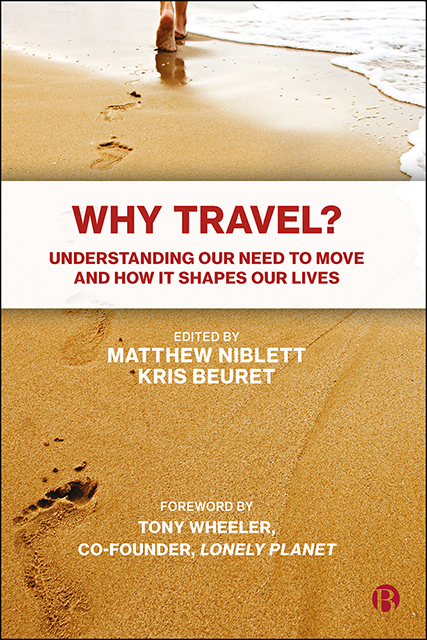Book contents
8 - Travel in Art and Literature
Published online by Cambridge University Press: 21 April 2023
Summary
Introduction
Travel lies at the heart of many of our creative enterprises – so much so that it is difficult to imagine much of our greatest art or literature without the concept of movement. In this chapter we illustrate the deep and mutually influencing relationship between travel and art (in its broadest sense): how our artistic creations have been influenced by travel, and how travel has been shaped and inspired by art. Travel enables interchange of ideas, inspiring aesthetic trends and new art forms. Travel also provides a core motif or metaphor around which we tell stories and make sense of the world: from the great epics of ancient times, to science fiction and modern travel tales of self-discovery. And travel assists the creative process itself: providing the artist with inspiration and freedom.
The links between artistic endeavour and travel are fundamental. Both seem to be instinctive behaviours, linked closely with creativity. As explained in earlier chapters (Chapter 2 ‘Biological Perspectives on Travel’, Chapter 3 ‘Travel and the Mind’ and Chapter 4 ‘Philosophy and Travel’), travel – even the idea of travel – can increase our creative thinking. Both travel and creativity are linked with ‘novelty’ and ‘challenge’ (two concepts of huge importance within the development of art), which are good for our brains: in the short term they make us feel good, and in the long term they make our brains healthier. This chapter, then, builds on a relationship between travel and creativity that has biological foundations, and that has been noted and used by people since at least the Ancient philosophers. Writer Paul Theroux claims: ‘The nearest thing to writing a novel is travelling in a strange country. Travel is a creative act – not simply loafing and inviting your soul, but feeding the imagination, accounting for each fresh wonder, memorizing and moving on’ (1985: 140).
The approach of this chapter is necessarily a specific and personal one. We have chosen to explore the links between artistic endeavour and travel by first examining the language we use: metaphors and idioms in speech and writing. We then look at how travel has inspired the creation of artistic works, and shaped the form of those creations: artistic movements, aesthetic trends, and the development of different literary and art forms.
- Type
- Chapter
- Information
- Why Travel?Understanding Our Need to Move and How It Shapes Our Lives, pp. 141 - 162Publisher: Bristol University PressPrint publication year: 2021



